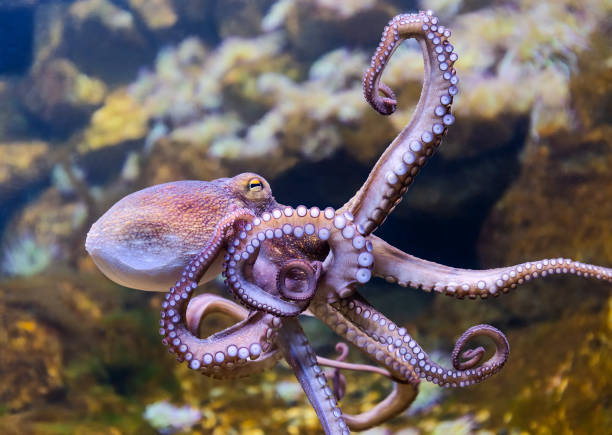The Intriguing World of Octopuses: Intelligent Invertebrates with a Knack for Camouflage
Octopuses, the eight-armed invertebrates of the sea, are known for their intelligence and astounding ability to change their appearance, both in color and texture. Delving into their fascinating world provides us with intriguing insights into their lives, their capabilities, and how they influence our understanding of intelligence in animals.

A Glimpse into the History of Octopuses
Octopuses have been a subject of human fascination for centuries. In ancient Mediterranean cultures, these cephalopods were often depicted in art and mythology. The ancient Greeks revered the octopus as a sacred creature, while the Romans considered it a delicacy. Over time, as scientific understanding improved, the octopus has been recognized for its intelligence and unique abilities, making it a significant subject of study in marine biology.
The Unusual Intelligence of Octopuses
Modern science has confirmed that octopuses possess cognitive abilities that are quite extraordinary for invertebrates. They can use tools, solve puzzles, and even escape from secure tanks, displaying a level of intelligence that is often associated with vertebrates. Recent studies have also shown that octopuses can alter their RNA, a phenomenon usually seen in viruses, which allows them to adapt rapidly to their environment.
Master Camouflagers of the Ocean
Octopuses are renowned for their ability to change their skin color and texture for camouflage. They utilize specialized cells known as chromatophores, which contain pigments and can reflect light. This unique adaptation not only helps them avoid predators but also aids in hunting prey. Recent studies suggest that octopuses may also use their color-changing abilities to communicate with each other, a notion that is currently a topic of ongoing research.
The Market for Octopus in the Pet and Food Industry
Octopuses are increasingly becoming popular as exotic pets, particularly the smaller species like the dwarf octopus. However, they require extensive care and a specific environment, making them suitable for experienced aquarists. The cost of keeping an octopus as a pet can range from $30 to $100, excluding the tank setup and maintenance costs.
In the food industry, octopus is considered a delicacy in many cultures, contributing to a global market worth over $1 billion. However, this demand has led to concerns about overfishing and the need for sustainable practices.
The Future for Octopuses
With their unique abilities and intelligence, octopuses continue to intrigue scientists and nature lovers alike. Current research is focusing on understanding the extent of their cognitive abilities, their behavior, and how they adapt to their environment. There are also initiatives to improve the sustainability of octopus fishing, ensuring that these fascinating creatures continue to thrive in their natural habitats.
The world of octopuses is indeed fascinating, merging ancient mythology with modern science. As we continue to unravel their mysteries, we gain not only a deeper understanding of these intelligent invertebrates but also a greater appreciation for the myriad forms that life takes in our vast oceans.




